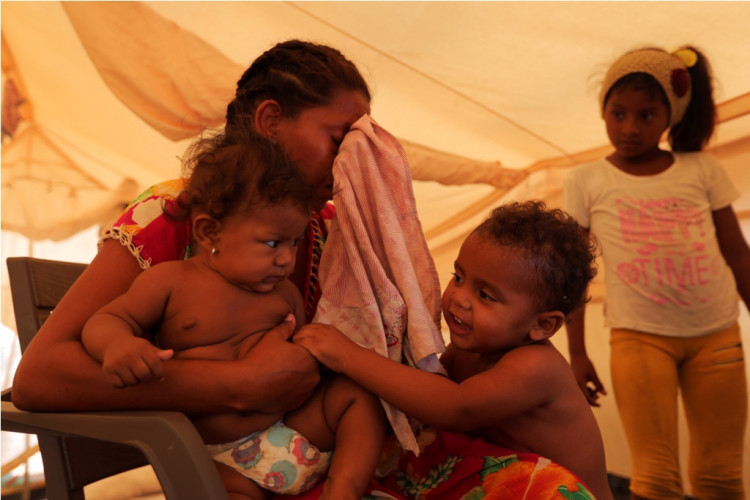Venezuela continues to struggle with the sharp drop in its exports and the war between incumbent President Nicolas Maduro and opposition leader Juan Guaido is beating down on the economy.
Back in the late 1950s throughout the 1980s, Venezuela was the richest country in the South American region. The democratic government transition in 1958 helped spur economic growth, but almost two decades later, oil prices dropped and the government's failure to implement economic reforms took a toll on the economy, Business Insider reported.
Venezuela still holds the record for the world's largest oil reserve areas. However, production dropped by 2.3 percent than what it used to produce almost five decades ago, an issue that analysts find alarming.
The CIA Factbook revealed that oil made up for around 95 percent of the nation's overall revenue in 2017. However, the sharp decline in oil production could bring down the figures in the coming years.
Unemployment is another top problem that the Venezuelan government struggles with. Experts have predicted that unemployment rates will exceed 44 percent this year. By 2020, it is expected that the number of people without jobs will reach a record high of 50 percent.
Economists from the International Monetary Fund (IMF) estimated that inflation could hit up to 10 million percent this year, according to Euro News. Many Venezuelans also expressed concerns about their salaries potentially being unable to cope with price increases in various commodities.
If the estimations prove to be true, a product that used to cost $1 could be equivalent to $10 million, a startling jump and a reason for concern among government officials who want to drive economic developments.
The worsening economic conditions in Venezuela have prompted many citizens to leave their country. According to Voice of America, the United Nations (UN) refugee agency revealed that around 3.7 Venezuelans have fled the country to settle in Peru, Colombia, Brazil, and other countries.
UNHCR spokeswoman Liz Throssell has called on refugee-receiving countries to allow Venezuelans to find greener pastures and not force them to return home, regardless of their legal status.
Throssell argued that fleeing Venezuelans need refugee protection from other countries. While no refugees have been deported so far, Throssell noted that this could change if more citizens follow suit and refugee numbers increase.
Meanwhile, some political analysts predicted that bilateral talks between Maduro and Guaido may not bring out the desired results. FOX Business reported that negotiations are currently being held between the two Venezuelan presidents - one who is legally the nation's chief, and one who is recognized by multiple world governments as the rightful leader.
Sources reportedly revealed that the agenda of potentially holding free elections has not yet resulted in an apparent agreement between the two sides.






